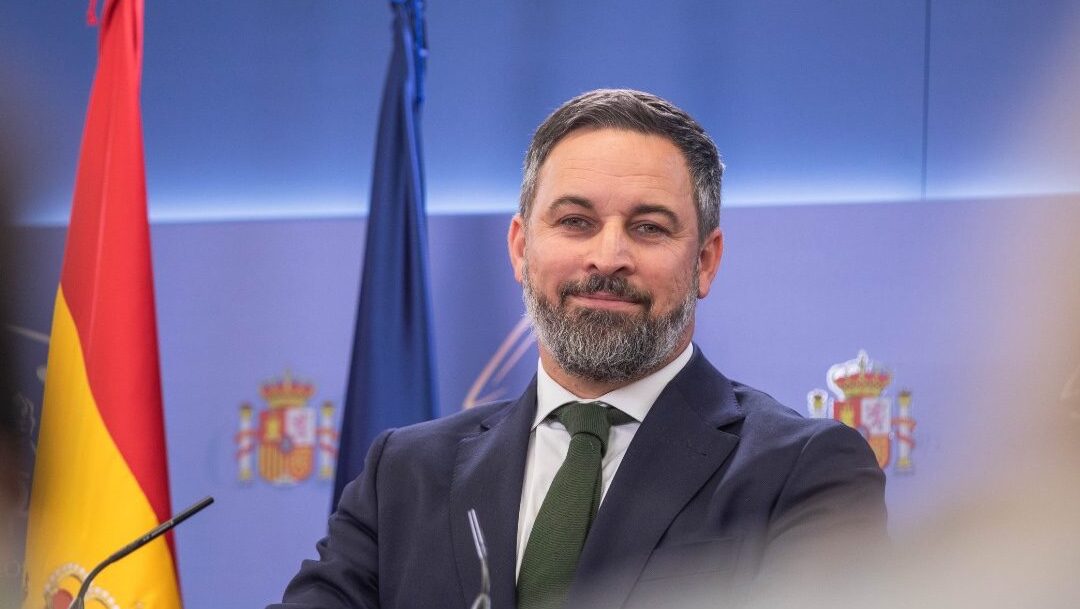
Santiago Abascal
The conservative VOX party has registered a vote of no confidence against Spain’s present socialist-led government, proposing, in its stead, one led by a globalist economist who is also a climate-change alarmist.
What is the right-wing party really up to?
The vote is doomed to failure, as none of the parliamentary groups supporting the current government have broken ranks. VOX knows that. As Santiago Abascal, VOX’s president, explained in the country’s congress of deputies, it proposed the motion as its duty to “paint” the current government as his party sees it, namely the “worst government in Spain in decades.”
Since consolidating his power in 2019, Prime Minister Pedro Sánchez’s coalition government of socialists and neo-communists has liberalized abortion laws, legalized administrative sex changes and euthanasia, empowered Catalan separatists, and compromised the independence of the judiciary for its political purposes. In January, a multitude of Spaniards took to the streets to denounce the policies of the current government as well as its dictatorial, ideological, and divisive drift. Even members of Sánchez’s own party, particularly the older generation that had helped lead the country into democracy after the death of dictator Francisco Franco, have been critical of the current president and the compromises he has made with both independentists and the neo-communist party in order to stay in power.
Local and general elections will be held later this year, but the no-confidence motion and VOX’s choice of a presidential candidate are designed to hold up a mirror to the political establishment in the hope that the reflection startles voters into realizing, as VOX believes, that the country is at a decisive moment for changing its course before long-lasting damage is done.
“It was about looking for a De Gaulle, a Cincinnatus, a figure who could be a reference in a moment of crisis. And, of course, Ramón Tamames [was it],” explained Fernando Sánchez Dragó, a writer and journalist who is close to the VOX leadership.
“I have to admit that the party leaders themselves were baffled, but the next day they were already meeting to conduct the negotiations,” Dragó added, recalling the dinner with VOX’s leaders when he proposed Tamames, even though his profile isn’t necessarily the most suitable for a party like Vox.
The 89-year-old Tamames is an internationally recognized economist, who has published widely and taught at the Autonomous University of Madrid. Along with figures like 81-year-old centre-left politician Felipe Gonzalez, who was prime minister from 1982-1996, Tamames was an architect of Spain’s current democratic regime and a signatory to its 1978 constitution, which is still in force. Though never a hardcore Marxist, he began in politics in the inner circle of the Spanish communist party before moving to the center and ending up in the mainstream political right, the predecessor to the current center-right Partido Popular. Besides economics, he has also written about Spanish history and ecology. He considers anthropological climate change one of humanity’s greatest challenges at the moment.
“On international and ecological issues, my position has not changed at all,” he said about his views in a 2013 interview. “Economically, yes, although I was never in favor of the nationalization of the means of production or the dictatorship of the proletariat. I was in the PCE [Spanish Communist Party] because we had to promote a democratic Constitution. I had read more of Marx than most of my peers, but I was not for Marxism-Leninism. Over the years, I have discovered that capitalism is a cat of seven lives that seems to put up with everything.”
Though not all of his political opinions align with the VOX platform, Tamames is, as Antonio Robles writes in LibertadDigital “a cultured man, who believes in Spain and knows what it has cost us to get here. His own life is the triumph of intelligence, generosity, and reconciliation between Spaniards.”
As part of the no-confidence vote, the replacement candidate is allowed to address the congress of deputies for an unlimited amount of time. Not a hint has been dropped about the content of his speech, except that Tamames has complete freedom as to its content.
But when he takes the podium in parliament again, it will likely be as “the old anti-Franco fighter” and father of a nation warning his sons they are squandering their inheritance.
For his part, Abascal can congratulate himself, even if the motion fails, his party will have thrown its full weight into leveraging its role as political opposition.
The vote on the motion of no confidence is expected to take place at the beginning of May.
